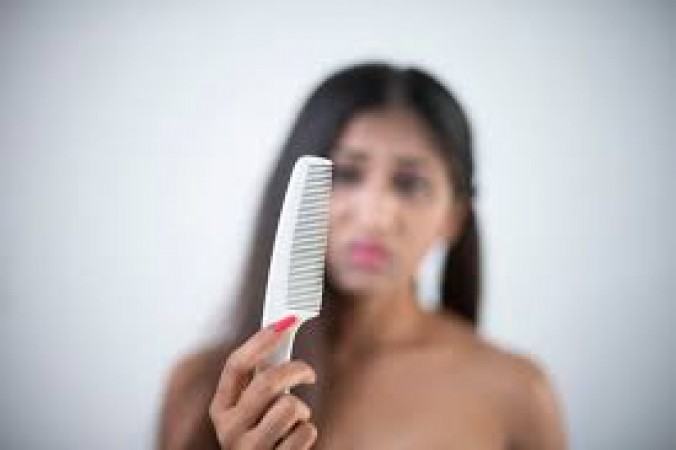
Hair fall, a common concern that transcends generations, has sparked an everlasting quest for effective prevention strategies. In this comprehensive guide, we will meticulously explore the various factors and habits that play a pivotal role in preventing hair fall. Buckle up as we unravel the secrets to maintaining a luscious mane.
Nutrition serves as the cornerstone for robust and vibrant hair. It's imperative to ensure your diet includes a well-balanced mix of proteins, vitamins, and minerals.
Proteins, often referred to as the building blocks of hair, are crucial for maintaining strength and promoting growth. Foods rich in protein, such as eggs, fish, and lean meats, should be staples in your diet.
Vitamins play a significant role in hair health. Incorporate foods rich in vitamins A, E, and D into your daily meals. Leafy greens, nuts, and dairy are excellent sources.
For combating dryness and enhancing the sheen of your hair, include omega-3 fatty acids in your diet. Salmon, chia seeds, and walnuts are fantastic choices.
While maintaining cleanliness is essential, overly aggressive hair care can contribute to hair fall. Embrace these gentle practices for optimal hair health.
Choose a mild shampoo that suits your hair type, and avoid the temptation to wash excessively. Overwashing can strip the scalp of its natural oils, leading to increased vulnerability.
While a hot shower may be tempting, it can weaken hair strands. Opt for lukewarm water during your hair care routine to retain the integrity of your locks.
After washing, pat your hair dry gently with a soft towel. Vigorous rubbing can lead to breakage and weaken the hair shaft.
Stress, often underestimated, is a silent contributor to hair fall. Implementing stress-relieving strategies can significantly impact overall well-being.
Incorporate mindfulness techniques such as yoga and meditation into your routine. These practices not only reduce stress but also improve blood circulation, benefiting your hair.
Quality sleep is a fundamental requirement for overall health and well-being. It provides the body with the necessary time to rejuvenate, creating a conducive environment for hair growth.
Water is not only essential for your body but is also a fundamental requirement for maintaining healthy hair.
A well-hydrated scalp is less prone to dryness and dandruff, creating an environment that fosters healthy hair growth. Ensure you stay hydrated throughout the day.
Certain herbal teas, such as chamomile and green tea, contain antioxidants that can benefit hair health. Consider incorporating these into your beverage choices.
Excessive styling can lead to hair fall. Adopt protective measures to maintain your hair's integrity.
Limit the use of heating tools, and when unavoidable, always apply a protective serum before styling. This helps in minimizing the damage caused by excessive heat.
Tight hairstyles exert stress on the roots and may contribute to hair fall. Opt for loose styles to minimize tension on your hair.
A soothing scalp massage is more than just a pampering ritual; it has tangible benefits for your hair.
Scalp massages promote blood flow to the hair follicles, delivering essential nutrients and oxygen, which are crucial for hair health.
Incorporate nourishing oils like coconut or almond into your scalp massages. These oils provide additional moisture and nourishment to your hair.
Sometimes, hair fall is a symptom of an underlying health concern. It's crucial to address these issues promptly.
If hair fall persists, seek advice from a healthcare professional. They can help identify any underlying health issues that may be contributing to the problem.
Imbalances in hormones, especially during pregnancy or menopause, can contribute to hair fall. Monitoring and maintaining hormonal balance is essential for overall health.
Genetics can play a significant role in determining hair health. Understanding your family history can provide valuable insights.
Knowing your family's health background, especially regarding hair issues, can help you take proactive measures to care for your hair.
Consider genetic testing if you have concerns about hereditary hair conditions. This can provide a deeper understanding of your genetic predispositions.
While trimming your hair might seem like a routine aesthetic choice, it goes beyond that—it's a key practice for maintaining healthy hair.
Regular trims help prevent split ends, which can travel up the hair shaft and lead to breakage. This promotes overall hair health and appearance.
Beyond just maintenance, a fresh trim revitalizes your hairstyle, boosting your overall confidence and satisfaction with your appearance.
Exploring natural remedies is a popular avenue for those seeking alternatives to commercial products.
Aloe vera, known for its soothing properties, can nourish the scalp and strengthen hair. Apply aloe vera gel directly to the scalp and leave it on for a designated period before washing.
Fenugreek seeds, when ground into a paste, can serve as a natural remedy for hair fall. Apply the paste to your scalp, leave it on for a while, and then rinse thoroughly.
Preventing hair fall is not a one-size-fits-all endeavor. It demands a holistic approach that encompasses lifestyle choices, nutritional habits, and mindful practices. By embracing these habits, you pave the way for a healthier, more resilient crown of glory.
People of this zodiac sign may face big problems today, know your horoscope
Today people of these zodiac signs will get solution to every ongoing problem know your horoscope
Financially, the day will be special for people of these zodiac signs, know your horoscope